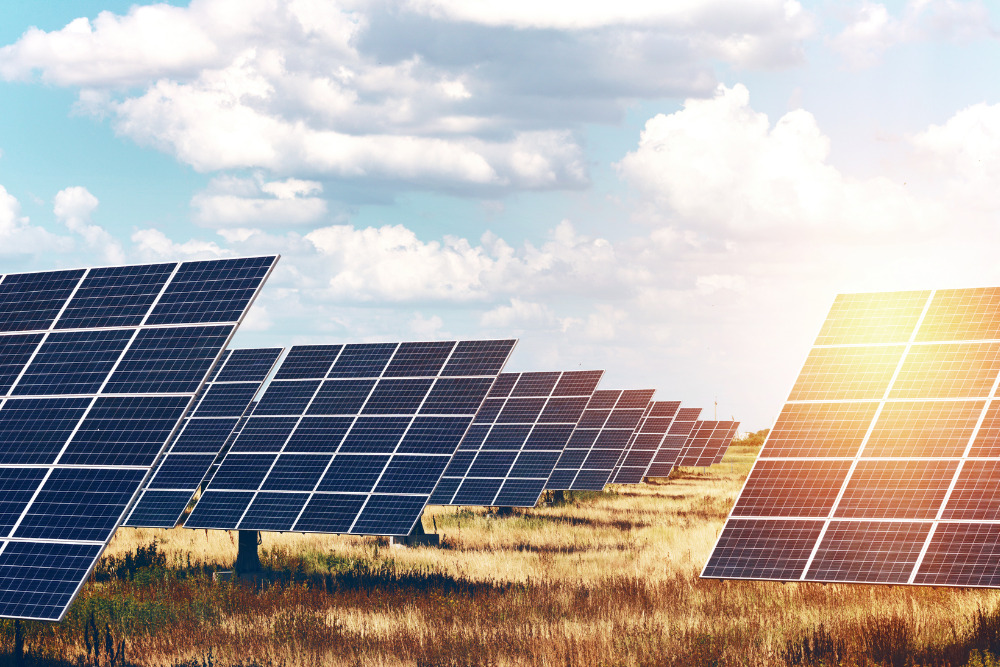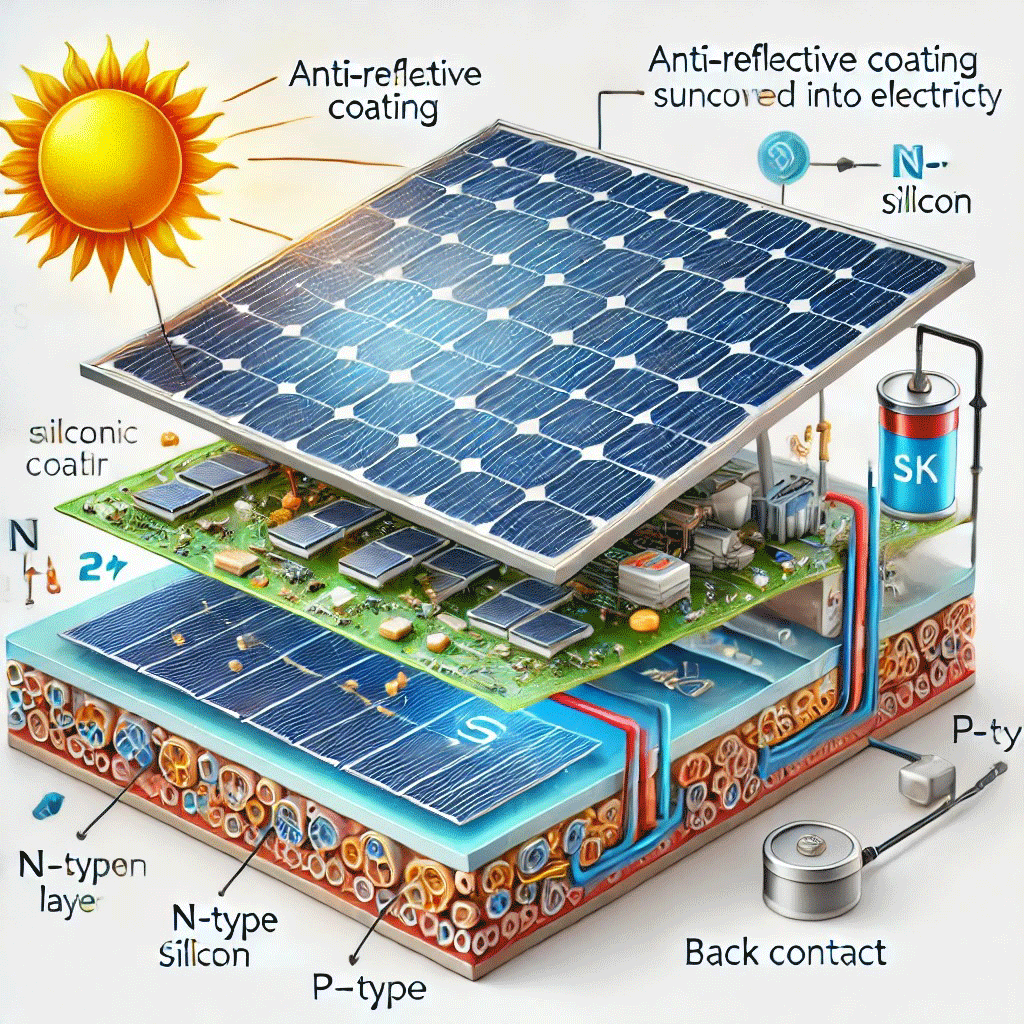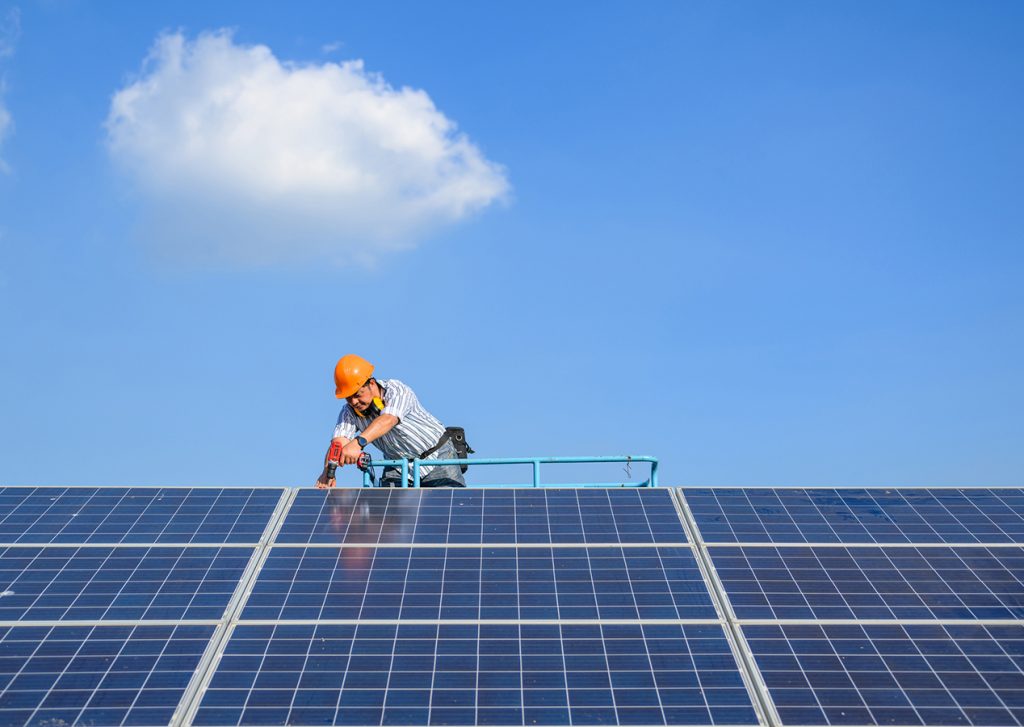Simply Solar Illinois: Eco-Friendly Solar Solutions to Light Up Your Home
Simply Solar Illinois: Eco-Friendly Solar Solutions to Light Up Your Home
Blog Article
Solar Power 101: A Beginner's Overview to Sustainable Energy Solutions
As the world increasingly shifts in the direction of sustainable power options, understanding the basics of solar power comes to be necessary for both people and businesses. By discovering the benefits of solar innovation, alongside the economic motivations and setup processes, one can get a more clear perspective on exactly how to effectively integrate this eco-friendly resource into their power approach.
Understanding Solar Power
At its core, recognizing solar energy includes grasping the essential concepts of how sunlight can be transformed right into useful power. Solar power is originated from the sun's radiation, which can be utilized through numerous innovations. The key mechanism for this conversion is the solar effect. This phenomenon occurs when sunlight strikes semiconductor products, typically silicon-based, within solar cells. The energy from the sunshine delights electrons in the semiconductor, permitting them to stream easily and generate direct existing (DC) power.

Recognizing solar power additionally entails identifying its ecological advantages. By making use of sunshine, we can minimize greenhouse gas emissions and reduce air contamination, contributing to a more lasting future. The advancements in technology and efficiency of solar systems continue to enhance their practicality, making solar power a progressively eye-catching option for global energy needs.
Kinds Of Solar Power Systems
Numerous kinds of solar power systems are generally utilized to harness solar energy for electricity generation. The main classifications consist of solar (PV) systems, focusing solar power (CSP) systems, and solar thermal systems.
Photovoltaic or pv systems make use of solar panels composed of silicon cells that convert sunshine directly into electricity. These systems are functional and can be set up on rooftops, ground mounts, or incorporated into structure products.
Concentrating Solar Power systems, on the various other hand, use mirrors or lenses to focus sunshine onto a tiny area, creating heat that drives a vapor turbine to generate electrical energy - Simply Solar Illinois. CSP systems are generally released in large-scale power plants and need straight sunlight, making them less ideal for cloudy areas

Each sort of solar energy system has its distinct attributes, applications, and viability depending upon geographical location, energy requirements, and budget, making it necessary to examine alternatives based upon certain conditions. - Simply Solar Illinois

Advantages of Solar Energy
Utilizing solar power with different systems not just offers a lasting way to create electrical energy but likewise offers a wide variety of advantages. One of one of the most significant advantages is the reduction in greenhouse gas exhausts, contributing to a cleaner environment and combating climate change. Solar energy is renewable, suggesting it is endless and offered as long as the sun shines, unlike nonrenewable fuel sources, which are limited and diminishing.
Additionally, solar power can cause significant price financial savings gradually. Home owners and organizations can lower their electrical energy costs significantly, and in many instances, they might earn credit scores for excess energy produced through internet metering. In addition, the solar sector creates work, from making to setup, stimulating neighborhood economic situations.
An additional engaging benefit is energy independence. By creating their very own electrical energy, individuals and communities can reduce reliance on exterior energy sources, view website boosting resilience versus fluctuating energy costs and supply interruptions. Solar energy systems require very little maintenance, making them a practical choice for lasting power generation.
Installment Process Introduction
The installment process for solar power systems normally entails several essential actions that make certain effective integration into a residential or commercial property. At first, a thorough website analysis is conducted to assess the roofing's alignment, shielding, and architectural integrity, which are crucial to enhancing photovoltaic panel performance. Following this evaluation, the style phase begins, where a tailored solar energy system is set up based upon the property her explanation owner's power needs and choices.
As soon as the layout is wrapped up, the essential authorizations and authorizations are obtained from regional authorities, making certain conformity with guidelines. The real installation involves placing the photovoltaic panels on the roof or ground, connecting them to an inverter, and incorporating the system with the home's electric configuration. This phase may likewise include setting up battery storage systems, depending on the design.
After setup, a complete assessment is conducted to confirm the system's performance and security. The system is commissioned, and home owners are enlightened on its operation and maintenance. With the installation total, the solar power system can begin creating sustainable power, adding to sustainability and decreasing utility expenses. This structured strategy makes certain that solar systems are both efficient and trusted, optimizing their long-term benefits.
Financial Incentives and Cost Savings
Checking out the monetary incentives and cost savings from this source connected with solar energy systems can considerably improve the appeal of making the switch to renewable energy. One of the most noteworthy rewards is the federal solar tax credit report, which enables house owners to deduct a portion of their solar system installation expenses from their federal taxes.
In addition to tax obligation credits, several states supply refunds that can even more decrease ahead of time costs. Some utility companies additionally supply performance-based rewards, gratifying solar energy production over time. Funding choices, such as solar car loans and leases, allow customers to set up systems with little to no down payment, making solar power more obtainable.

Lasting savings are one more essential factor. By generating their own electrical power, home owners can significantly reduce or even eliminate their regular monthly power costs. In addition, planetary systems can enhance property values, providing a solid roi. In general, the combination of motivations and financial savings makes solar power a financially attractive choice for many households.
Verdict
In final thought, solar power represents an important part of sustainable power options, providing a path toward minimized carbon impacts and improved environmental security. Inevitably, the shift to solar power not only cultivates ecological obligation yet likewise advertises economic financial savings and energy self-reliance.
Report this page